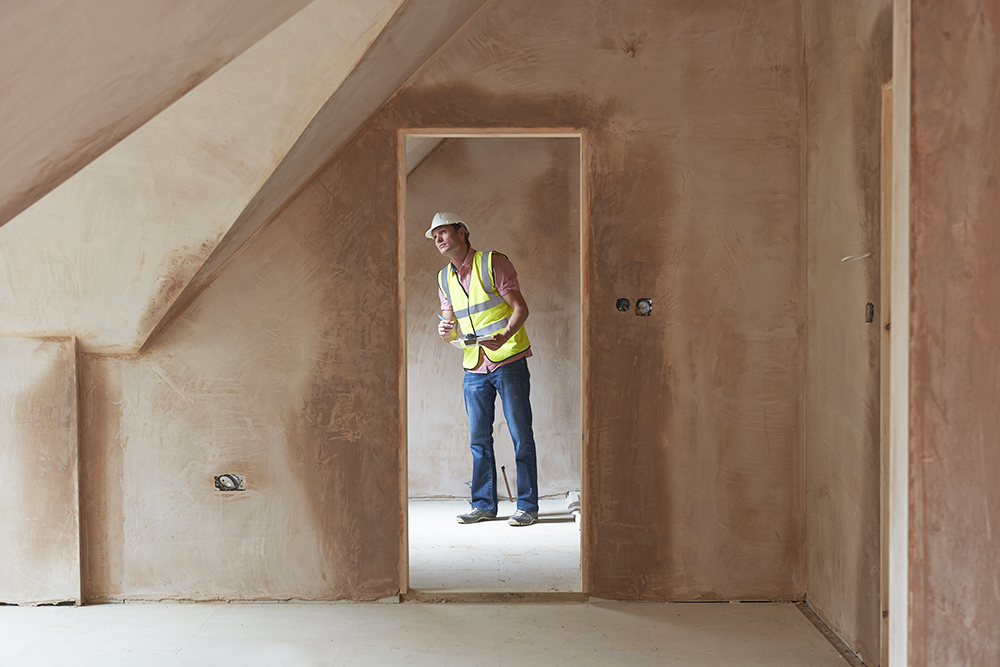You can be confident that you’re buying a good, solid house … even if you’re not a structural engineer, plumber, roofer, or professional air quality evaluator.
How? You hire a home inspector, of course.
This is true for new-construction homes, historic treasures, or your standard 30-year-old find.
But wait — first learn about home inspection tips that could save you money and keep you from making missteps along the way.
1. Not getting multiple recommendations
Your real estate agent might suggest a home inspector, and that inspector could turn out to be wonderful. But you’re the one buying the house, so make sure you choose well. Besides asking your friends and neighbors, use the American Society of Home Inspectors to vet their recommendations and make sure you hire someone who’s qualified.
“Interview the inspector and find out about how they work, what their background and training are, whether they are licensed and insured, attend continuing education classes, and have a communication style that you are comfortable with,” says Welmoed Sisson, a Maryland home inspector.
2. Not attending the inspection
Because buyers get a report from the inspector after the job’s done, many people don’t realize they can be at the inspection. In fact, good inspectors expect you to be there. That way, they can show you what they find and let you know whether it’s a big deal or not.
Unfortunately, some inspectors might cut corners, which is another reason to be there. Don’t let some snow or construction debris prevent your inspector from checking a hard-to-get-to area.
“If it’s raining, the home inspector may avoid inspecting some exterior areas, such as the deck or crawl spaces,” says Massachusetts real estate attorney Rob Pellegrini.
If that happens, there’s a possibility a potential problem could be missed.
3. Being too intimidated to ask questions
Unless you’re a contractor, you probably don’t know much about the “guts” of the house: the electrical, plumbing, and HVAC systems.
So attend the inspection — and ask plenty of questions. “A good inspector will answer all of your questions thoroughly and will explain what he’s doing and looking at all along the way,” says Rob Williams, a Washington, DC, real estate agent.
If you don’t understand what the inspector just told you, ask for clarification. “Don’t let it slide because you’re too scared to ask,” says Williams.
4. Not turning on utilities
For a normal home inspection, the utilities will still be connected by the sellers — but that isn’t always the case. “With certain foreclosure properties, it’s the buyer’s responsibility to get utilities turned on for an inspection,” says Williams.
If utilities are turned off, you’ll miss seeing important stuff, such as whether the dishwasher drains properly, the pipes leak, or the water flow is sufficient. (When you have a head full of shampoo isn’t when you want to find that out.)
5. Not testing for water and mold problems
If the home you’re buying gets its water from a drinking well (about 15% of U.S. homes do), you need to have the water tested for contaminants.
Caroline Blazovsky, a healthy-home expert in New Jersey, says everyone should get water tested — whether the water comes from a well or from a public source. “Water testing can tell you about the integrity of your plumbing, if you have copper or PVC, or if you have arsenic, lead, or radon exposure in the home.”
It’s also important to test for mold. “Mold remediation can be expensive, and if you have toxic molds, you may end up with health complaints,” says Blazovsky.
6. Assuming a new-construction home is fine
You probably wouldn’t have a new car inspected by a mechanic before buying it, so the same goes when buying a new house, right?
Surprisingly, new homes still need to be inspected. Some have been known to topple faster than a five-tier wedding cake without dowel support. Many have defects, even if they did meet county codes.
If the builder reassures you that the house is perfect, get it inspected anyway. Save your urge to gamble for the casinos.
7. Not hiring a specialist if you need to
A home inspector is like a doctor who’s a general practitioner. They both can diagnose problems, and they both know when to refer you to a specialist. If your housing inspector recommends a specialist, you should get one.
“Buyers shouldn’t be discouraged or afraid of paying a little more money to have secondary specialized inspections done,” says Bill Leys of DeckExpert.com. “It may save them a ton of money later on.”
8. Not taking the report seriously
It’s understandable to want to buy a house after you’ve gone to all the trouble of finding it, putting in an offer, and then paying for an inspection. But don’t forget that the inspection is not a mere formality — you actually need to consider the results.
If the inspector finds problems that the seller won’t address, depending on the severity of the problems, you might need to pass on the deal.
Take this advice from David Feldberg, a California real estate broker: “Being out the cost of a home inspection is a lot less than some big problems down the road.”


